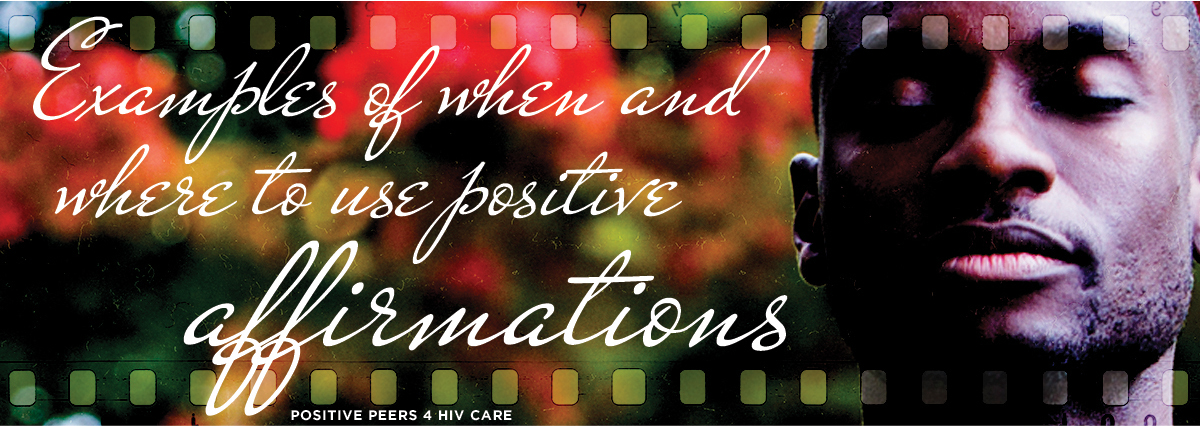
By: Jennifer McMillen Smith, LISW-S, HIV Social Worker at MetroHealth Medical Center and medically reviewed by Ann K. Avery, MD, Infectious Disease Physician at MetroHealth Medical Center
Your emotional wellbeing has a big impact on your overall health. Having good emotional health helps you learn to understand your thoughts, feelings, and behaviors. Figuring this out will help you learn to cope with the stress in your life and daily problems you encounter.
Self-talk plays a big part in our emotional health. It starts when we’re young and is made up of all our thoughts and beliefs. Any conscious thoughts you have impact your subconscious beliefs. Everything you think, every memory you have, and every action you take are sorted in your subconscious memory. After a while, some become more powerful than others. If they happen to be negative, it can lead to bad side effects.
There are a lot of different things that can disrupt your life and emotional health. These things often lead to feelings of sadness, creates stress, and make you anxious.. Having a negative mind and negative outlook on life can impact your health by creating negative responses and behaviors.
Some examples of things that can cause stress and negativity are:
- Getting laid off from work
- Someone close to you dying
- Dealing with an injury or illness, including HIV
- Having money trouble
The longer you hold onto negative thoughts and emotions, the more damage it can do to your body by creating chronic stress. It doesn’t seem like stress should be able to hurt you, but it can over time. Without getting it under control, stress drains the chemicals in your brain that make you happy. Throwing your hormones out of whack and hurting your immune system can also happen, which isn’t good when you’re a person living with HIV. It can also lead to stomach ulcers, high blood pressure, headaches, panic attacks, and more.
What is a positive affirmation and how does it work?

Positive affirmations are something you can use to combat negative and self-sabotaging thoughts. So what are they? They’re short statements that will change the way you think.
It may feel silly to use affirmations at first because your subconscious doesn’t believe in what you’re saying just yet. For positive affirmations to work, you have to stick with them and really believe they’ll work. If you don’t believe, it probably won’t work. Repeat the positive affirmation as if you already believe in it and eventually, your subconscious will start to believe it too.
Come join our private, stigma-free, supportive community.
Health management tools with medication & appointment reminders.
Social networking in a community conversation & private chats.
What do you say in an affirmation?
Think about the areas in your life that need work. Do you want to be more body positive? Would you like to put your own needs first more often? Whatever you’d like to change in your life should be the focus of your affirmation—just make sure it’s realistic! Writing your affirmations in the present tense will help you believe in them.
Some examples of positive affirmations include:
- I can do this!
- I am successful.
- I am happy.
- I am worthy.
- I will move beyond my fears.
Examples of when and where to use positive affirmations

Something that can help is writing your affirmations on a sticky-note and putting them on your bathroom mirror, in your car, at your desk at work, or any other place you’ll see it a lot. The sticky-notes can give you a little extra help when you’re feeling down!
Using sticky-notes can help you:
- Kick a bad habit.
- Boost your self-esteem
- Psych yourself up before you have a work presentation or meeting.
Here are some tips to get you started with positive affirmations:
- Say your affirmation out loud. Practicing in front of the mirror might help if you’re uncomfortable.
- Program affirmations into your phone so you get reminders. You never know when it could help!
- Try the “Three Good Things” For about 10 minutes a day for a week, you’ll write about three good and three bad things that happened.
It’s always a great thing to try to change ourselves for the better, but to change our beliefs, we have to first change our thoughts. Focusing on positive affirmations consistently for a few minutes each day will help lead to improving your thoughts, putting you on the road to a better life! After all, you can’t have a positive life and a negative mind.
Related Blogs:


